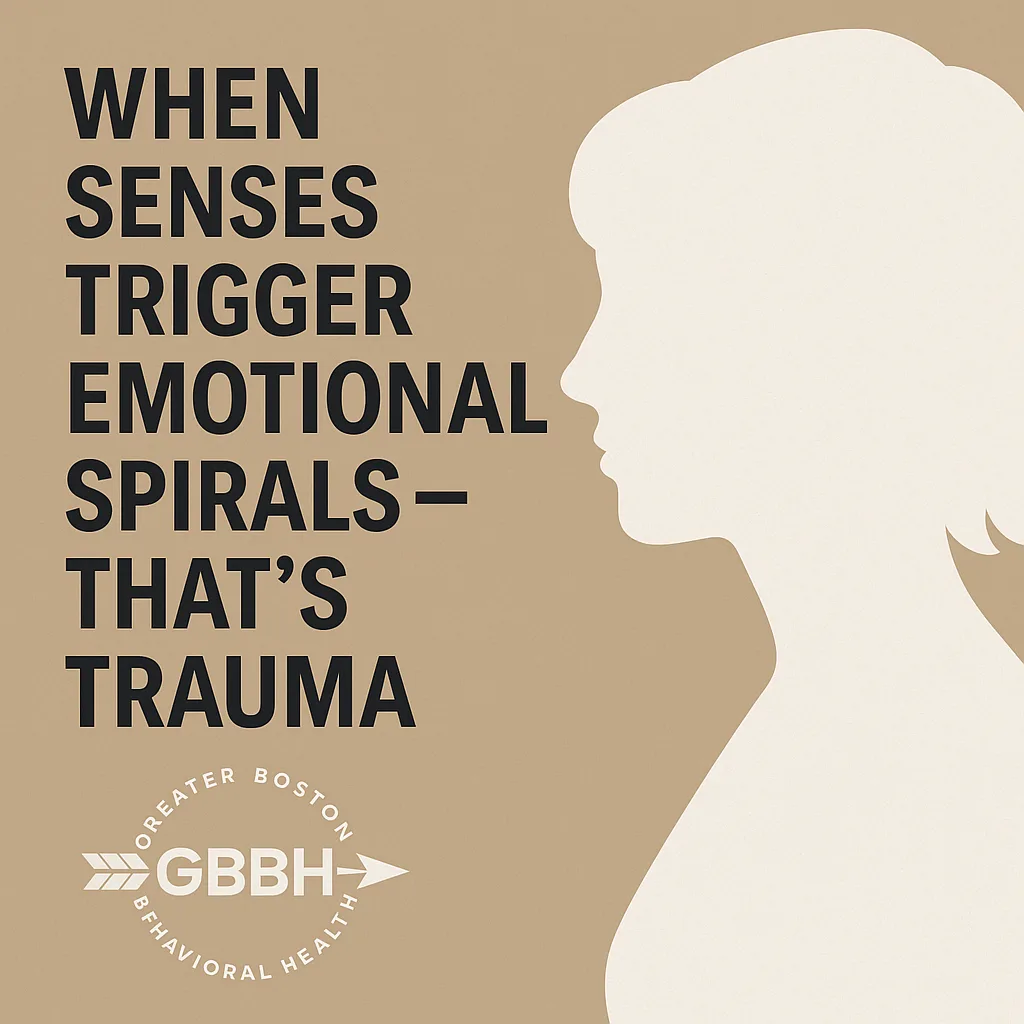You’re sitting at your desk, answering emails, when a coworker’s ringtone plays a song you haven’t heard in years. Your heart rate spikes. Your hands go cold. You can’t breathe right—and you don’t know why.
No one around you notices. You force a smile and keep going. But inside, something sharp and unspoken just cut through your whole morning.
That’s not weakness. That’s trauma. And it doesn’t always come with a clear memory.
What Trauma Really Is (and Why It’s So Often Missed)
We tend to picture trauma as something big and obvious—a violent event, a sudden loss, a crisis you can point to. But trauma isn’t defined by how dramatic the event is. It’s defined by how your body experiences and holds it.
You can be traumatized by the way you were dismissed, not just the moment you were hurt. You can carry trauma from years of emotional neglect, not just a single event.
Here in Boston, we see people every day at Greater Boston Behavioral Health’s trauma therapy program who’ve spent years believing they “should be over it by now.” But trauma doesn’t move on just because we want it to. It waits until we feel safe enough to heal.
When a Trigger Isn’t Just a Trigger—It’s a Signal
Maybe it’s the scent of cologne on the subway. The squeak of a certain door. The way someone raises their voice—not even at you, just near you.
These “triggers” can seem random. But they’re not. They’re tied to the sensory memory of something your nervous system still sees as dangerous.
You don’t have to remember the original moment to be affected by it.
In trauma therapy, we work with both the brain and the body. That means helping you identify what sets off those spirals—and slowly, gently teaching your system how to respond differently.
“I’m Not Falling Apart. I Just Feel… Off.”
This is where a lot of people get stuck.
They’re not in crisis. They’re showing up to work, taking care of their families, replying to texts. But they’re also:
- Struggling to sleep
- Snapping at the people they love
- Avoiding certain topics, places, or situations without knowing why
- Living with a tightness in their chest they can’t explain
You don’t have to hit bottom to be hurting. And you don’t have to be visibly falling apart to benefit from therapy.
If your day-to-day feels like walking on emotional eggshells—even if no one else sees it—a trauma therapy program can help you stabilize, understand, and heal what’s underneath.
What Happens in a Trauma Therapy Program?
A trauma therapy program isn’t about reliving your worst moments. It’s about helping you understand what your body and mind are trying to protect you from—and giving you tools to respond with more control, more choice, and less fear.
At Greater Boston Behavioral Health, we offer trauma therapy in Boston that’s rooted in safety, science, and choice. We use evidence-based approaches like:
- Cognitive Behavioral Therapy (CBT) to understand patterns of thought
- Eye Movement Desensitization and Reprocessing (EMDR) for processing stored trauma
- Somatic therapies to release physical tension and regulate the nervous system
And we don’t rush the process. You get to decide what you’re ready for. We meet you there.
Signs You Might Be Carrying Hidden Trauma
You might not even call it trauma. But if any of these feel familiar, it’s worth exploring:
- You feel “flooded” by emotion during certain songs, scents, or interactions
- You have emotional reactions that feel disproportionate—but out of your control
- You can’t relax, even when things are quiet
- You avoid certain people, places, or types of media without knowing why
- You feel numb or disconnected, especially when others expect you to feel something
You don’t have to check every box. If something in your body keeps saying “this isn’t okay,” therapy can help you listen to that message—and shift the pattern behind it.
Frequently Asked Questions
What’s the difference between regular therapy and a trauma therapy program?
A trauma therapy program is designed specifically for people whose emotional symptoms are tied to past trauma. It includes clinicians trained in trauma-informed care, and often uses advanced modalities like EMDR, somatic therapy, or attachment-based work.
Will I have to talk about everything that happened to me?
Not if you don’t want to. Trauma therapy focuses on helping you feel safe and stable first. We never force anyone to revisit memories they’re not ready for. Healing can happen through body awareness, emotional regulation, and building trust at your pace.
Can I be in trauma therapy if I don’t have a diagnosis?
Absolutely. Many people seek trauma support without a formal diagnosis. If you’re experiencing symptoms that interfere with your quality of life—like anxiety, shutdown, flashbacks, or avoidance—you deserve care, no label required.
How do I know if it’s really trauma?
You don’t need to know for sure before reaching out. That’s part of what therapy can help you figure out. If your internal experience feels bigger, heavier, or more confusing than what’s happening around you, there’s a reason. We’ll explore it together.
Is there trauma therapy in Boston that’s discreet and private?
Yes. At Greater Boston Behavioral Health, we understand the importance of confidentiality and respect. Our programs are designed to meet you with professionalism, empathy, and care—no matter where you’re starting from.
“What People Say” Wall
“I didn’t think what I went through counted as trauma. But therapy helped me realize my body was carrying the truth even when my mind didn’t want to.”
– Client, 2023
“My therapist never pushed. She helped me feel safe enough to be curious about my triggers, not scared of them.”
– Trauma Therapy Participant
Ready to Take the Next Step?
You don’t have to be ready to explain it all. You just have to be ready to feel better.
Call Greater Boston Behavioral Health at (888)301-8072 to learn more about our trauma therapy program in Boston, MA. We’re here to help you move from reaction to regulation, from spiraling to steady. Or visit our trauma therapy program page to explore your options.


